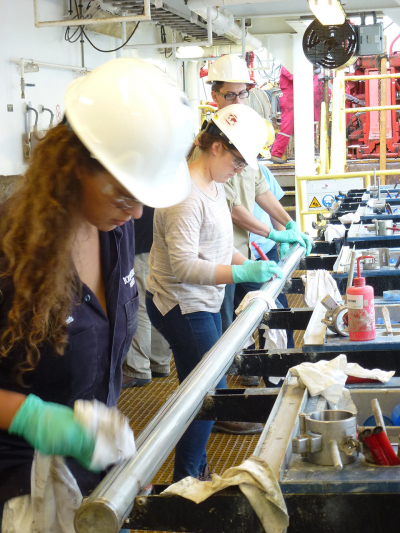Page path:
- Home
- Discover
- Archive News
- News 2022
- biogenic bloom
Why did ocean productivity decline abruptly 4.6 million years ago?
Karatsolis et al. (2022) Abrupt conclusion of the late Miocene-early Pliocene biogenic bloom at 4.6-4.4 Ma, Nature Communications, DOI: 10.1038/s41467-021-27784-6




